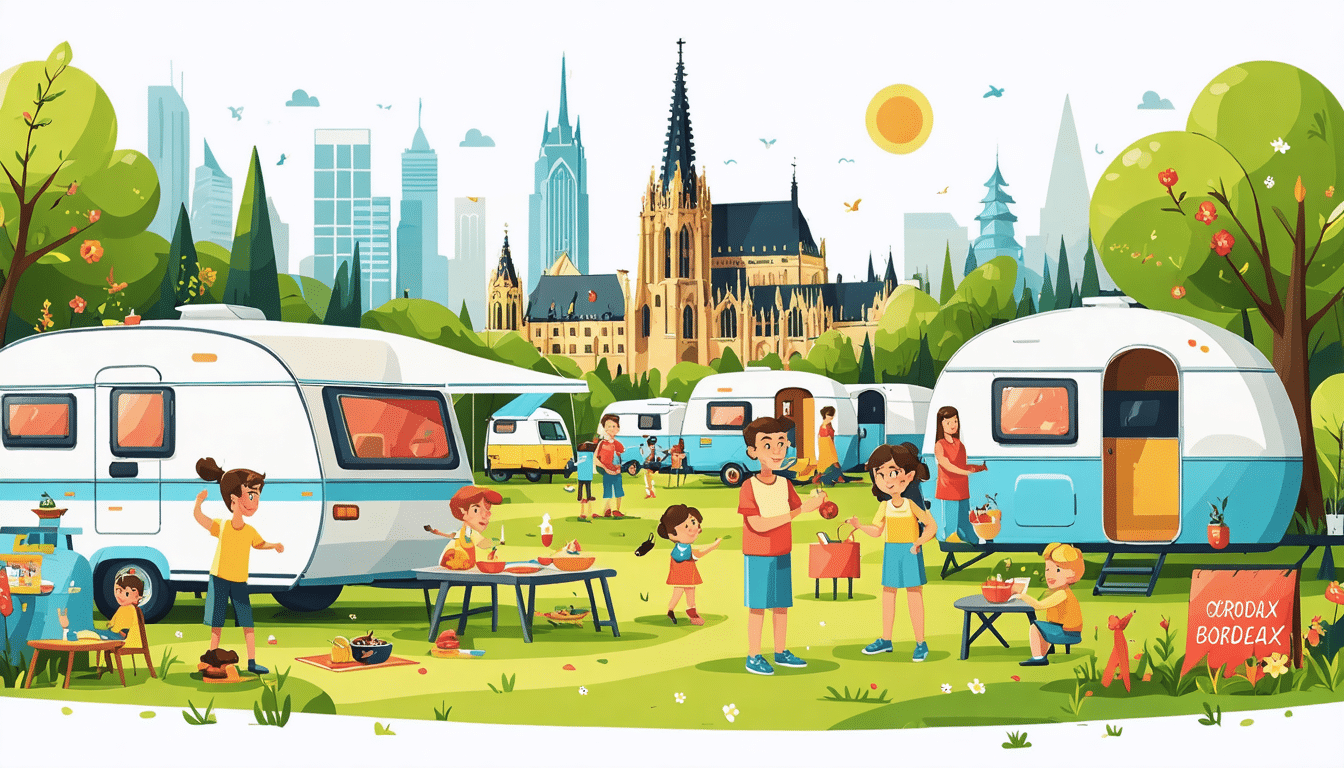|
IN BRIEF
|
The welcome of gypsies in the Bordeaux metropolis is the subject of numerous reflections and evolutions, involving needs for adaptation, public policies, access to land, and coexistence with the local population. As preparations for a new welcome scheme are underway and the situation of illegal settlements highlights the urgency of the matter, it is necessary to closely examine the daily reality of these residents and the complexity of the systems established to meet their needs.
Transit Areas: An Underutilized Capacity #
In the Bordeaux metropolis, the provision of transit areas meets a legal obligation: allowing itinerant groups to settle during their travels, primarily between April and October. Recently, the opening of new facilities in Mérignac and Artigues-près-Bordeaux has helped meet the required quotas. However, usage remains low, around 27% in Artigues in the first year. This phenomenon can be partially explained by the appeal of the coastline during the summer, but also by the search for dynamic locations for seasonal employment.
À lire Travel alert for American citizens due to threats of mass shootings in Honduras
The relevance of these areas is now being questioned, especially in light of the difficulties in integrating these locations into the life paths of gypsies. Feedback suggests that other, more sustainable solutions should be prioritized to better meet the expectations and installation paths. Several local conflicts illustrate the complexity of accepting these infrastructures, as evidenced by various cases near Toulouse or between Aubagne and La Ciotat (detailed example, another situation).
Towards a Diversification of Living Spaces: Family Plots #
A significant portion of the gypsies living in the Bordeaux metropolis are actual local residents, having chosen a specific living arrangement and wishing to establish themselves permanently. To respond to this aspiration, the creation of family plots is envisaged as a promising alternative. These spaces, similar to small housing estates, allow families to rent a house coupled with an area designated for a caravan.
Despite the proven success of the single family plot in Artigues, the creation of new spaces is slow, due to a lack of suitable land and local reluctance. Between 2019 and 2024, no new plots have emerged, even though the previous scheme had planned for sixty additional places. The search for private lands proves arduous, limiting the rapid development of the offer and constraining the possibilities of establishing a lasting presence within the Bordeaux neighborhoods.
To better understand this model and its positive impact on social integration and access to education, it is useful to observe experiences elsewhere, such as professional reorientation around La Rochelle (illustration here).
Permanent Welcome Areas: Between Residentialization and Saturation #
Alongside transit areas and family plots, permanent welcome areas aim to provide temporary shelter. However, faced with a lack of alternatives, many of these areas see families settling there permanently, a phenomenon termed “residentialization.” This is a logical consequence of the insufficiency of family plots and the lack of possible rotation.
In the Bordeaux metropolis, the dozen available welcome areas are insufficient to meet the demand. Several of them are even closed: Gujan-Mestras, Campugnan, Saint-Aubin-de-Blaye, Cavignac, and Tauriac. Additionally, there are delays in opening new sites planned in Pessac and Brazza-Niel, hindered by technical difficulties or opposition from residents. This context significantly reduces availability and encourages unauthorized settlements in parking lots or vacant lands, raising issues of coexistence and regulation (more information here).
A Political Will Hampered by Prejudices #
The development of the reception of gypsies in the Bordeaux metropolis often faces reservations from elected officials and the mistrust of part of the population. The establishment of new structures, whether transit areas or family plots, regularly sparks heated debates, driven by stigmatizing representations, as highlighted by a national awareness campaign (learn more).
It is observed that the efforts for welcoming often rely on the same municipalities, typically more engaged in social issues, while others prefer to exempt themselves from these obligations by citing technical challenges or land issues. The geographical distribution of future family plots, designed at the level of large sectors, also does not facilitate local political acceptance, as each mayor could shift responsibility to adjacent municipalities.
À lire Discover which city is the happiest in the world, far from the clichés of Paris and Helsinki
Finally, it appears that, despite the goodwill of some actors, the issue of welcoming travelers remains little addressed during electoral deadlines, suffering from its supposed unpopularity among voters, even as their integration remains a key issue for living together within the metropolitan territory.


